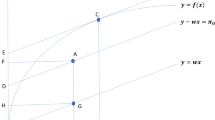
Overview
- Provides insights into the Data Envelopment Analysis models and optimization methods
- Presents theory and practice of economic efficiency analysis within the multiplicative and additive approaches
- Includes software package programmed in the Julia language
Part of the book series: International Series in Operations Research & Management Science (ISOR, volume 315)
Access this book
Tax calculation will be finalised at checkout
Other ways to access
About this book
The book discusses the concept of economic efficiency at the firm level, comparing observed to optimal economic performance, and its decomposition according to technical and allocative criteria. Depending on the underlying technical efficiency measure, economic efficiency can be decomposed multiplicatively or additively. Part I of the book deals with the classic multiplicative approach that decomposes cost and revenue efficiency based on radial distance functions. Subsequently, the book examines how these partial approaches can be expanded to the notion of profitability efficiency, considering both the input and output dimensions of the firm, and relying on the generalized distance function for the measurement of technical efficiency.
Part II is devoted to the recent additive framework related to the decomposition of economic inefficiency defined in terms of cost, revenue, and profit. The book presents economic models for the Russell and enhanced graph Russell measures, the weighted additive distance function, the directional distance function, the modified directional distance function, and the Hölder distance function. Each model is presented in a separate chapter. New approaches that qualify and generalize previous results are also introduced in the last chapters, including the reverse directional distance function and the general direct approach.
The book concludes by highlighting the importance of benchmarking economic efficiency for all business stakeholders and recalling the main conclusions obtained from many years of research on this topic. The book offers different alternatives to measure economic efficiency based on a set of desirable properties and advises on the choice of specific economic efficiency models.
Similar content being viewed by others
Keywords
Table of contents (14 chapters)
-
Front Matter
-
Benchmarking Economic Efficiency: The Multiplicative Approach
-
Front Matter
-
-
Benchmarking Economic Efficiency: The Additive Approach
-
Front Matter
-
-
New Approaches to Decompose Economic Efficiency
-
Front Matter
-
-
Back Matter
Authors and Affiliations
About the authors
Juan Aparicio is a professor Statistics, Mathematics and Information Technology at the Miguel Hernandez University of Elche (UMH), Spain, and the head of the Center of Operations Research. His research interest includes efficiency and productivity analysis combined with Machine Learning and Data Science. He is associate editor of Omega; The International Journal of Management Science, Journal of Productivity Analysis, Mathematics and Advances in Operations Research.
José Luis Zofío is a professor of Economics at the Universidad Autónoma de Madrid and former Chair of the Department of Economics. He is also Visiting Professor at Erasmus University and Wageningen University and Research, and Visiting Fellow to the Erasmus Research Institute of Management ERIM, where he collaborates with several academics from the Rotterdam School of Management. His research interests are related to measurement theory in economics, in particular the use of index numbers for efficiency and productivity analysis, as well as spatial economics and trade theory.
Bibliographic Information
Book Title: Benchmarking Economic Efficiency
Book Subtitle: Technical and Allocative Fundamentals
Authors: Jesús T. Pastor, Juan Aparicio, José L. Zofío
Series Title: International Series in Operations Research & Management Science
DOI: https://doi.org/10.1007/978-3-030-84397-7
Publisher: Springer Cham
eBook Packages: Business and Management, Business and Management (R0)
Copyright Information: Springer Nature Switzerland AG 2022
Hardcover ISBN: 978-3-030-84396-0Published: 13 July 2022
Softcover ISBN: 978-3-030-84399-1Published: 13 July 2023
eBook ISBN: 978-3-030-84397-7Published: 12 July 2022
Series ISSN: 0884-8289
Series E-ISSN: 2214-7934
Edition Number: 1
Number of Pages: XXXIV, 640
Number of Illustrations: 6 b/w illustrations, 118 illustrations in colour
Topics: Operations Research/Decision Theory, Econometrics, Production



